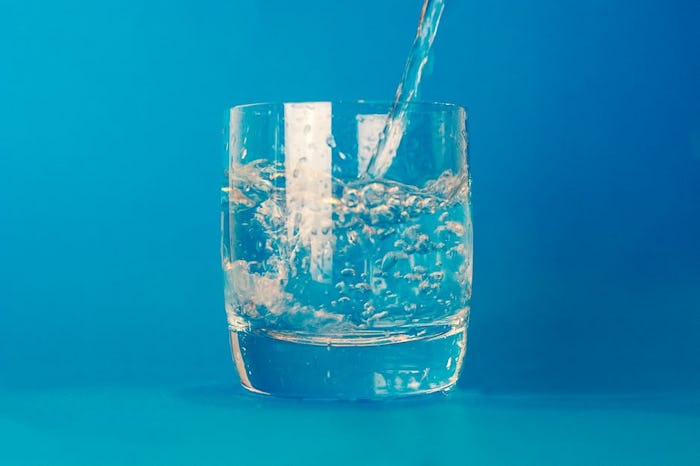Many moms-to-be experience new aches and pains throughout pregnancy. One thing that may not be new, however, are cramps. Although many women are used to experiencing them during their menstrual cycle, it's a little more alarming when it happens during pregnancy. However, finding the answer to "Does dehydration cause pregnancy cramps?" may help you figure out why you're cramping and if you need to pound back some water.
According to My Pregnant Health, occasional cramps are normal during pregnancy and nothing to fret over. Because your uterus is supported by muscles and ligaments, your growing baby can easily stretch your uterus, causing some abdominal cramps from time to time. Sometimes, however, cramps are an alert that there's something else happening.
Muscle Pain Solutions shared that women who are not pregnant need to drink between eight and 10 glasses of water a day. But if you are pregnant, the amniotic fluid is replaced every hour, and that means you need to double your water intake. The problem arises when most moms (pregnant or not) aren't getting in the basic eight to 10 glasses of water a day. This is why dehydration is the most common cause of muscle pain and cramps in pregnant women, according to the aforementioned Muscle Pain Solutions article.
What about abdominal cramps specifically? Not drinking enough water can easily contribute to cramping or the severity of cramps, but What to Expect also shared that if you feel uncomfortable about the cramping you're experiencing, it's always best to contact your doctor. It's also important to take note if your cramps include symptoms like fever, chills, bleeding, headache, painful urination, vision changes, or dizziness. If you find cramps are accompanied by other symptoms, it could be a sign of a few different things from a UTI to preeclampsia.
In addition to dehydration causing cramps, Healthline warned there are several other potential complications dehydration could lead to. Because water is used to make up the placenta and pass on nutrients to your little one, not getting enough water could up the risk of things like neural tube defects, low amniotic fluid, premature labor, poor breast milk production, and even birth defects.
So if you begin to notice abdominal cramping, or even general muscle cramping, be more conscious about water intake. From a personal standpoint, it wasn't until I started measuring my water each day that I realized how little I was actually drinking and how big of a difference drinking the correct amount of water made for my health. If you don't think water intake is the cause of your cramping, reach out to your doctor for further advice.
